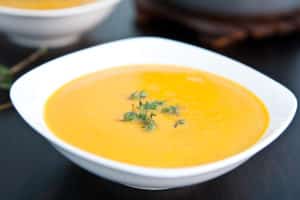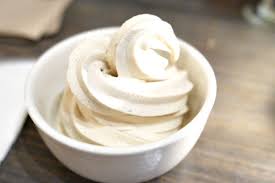What can I eat and drink following jaw surgery?
Good nutrition is important following facial surgery to help healing. After your surgery, chewing and swallowing may be difficult due to swelling, pain or less jaw movement.
After your surgery, the doctor will advise you on what type of diet is required. Depending on your surgery, you will start on a fluid or puree or soft diet. It is important that you follow the diet recommended by your doctor until they are happy for you to start eating normal foods again as this may impact on your recovery after surgery.
Some people find it hard to eat well, especially when their appetite is poor if they are in pain. If you are already underweight or have lost weight recently, it is important that you eat well. Have regular meals and snacks that are high in protein and calories over the day.
Fluid Diet

Depending on how easy it is to open your mouth, you may need to try using different feeding tools. Different shaped cups, bottles, spoon sizes, straws and syringes can help make it easier to drink.
To meet your fluid and nutrient needs, you need to aim for at least eight glasses of fluid per day (or two litres). It is important that you have nourishing fluids such as milk, yoghurt, custard, soups and juices. Try not to fill up on water, tea or coffee.
Puree Diet
Pureed foods must be smooth, lump free and not require any chewing. It should not be hard, dry, flaky or sharp. There should be no skins, husks, pips or strings. A blender, sieve, masher, food processor, bar mix or milkshake maker can be useful.
Other tips for preparing pureed meals include:
- Don’t overcook food.
- Remove tough skin and seeds from fruit and vegetables.
- Remove fat, sinew, or gristle before processing.
- Always puree dry foods with extra liquid (eg. sauces, gravy or milk).
- Add extra flavour with honey, lemon, herbs, spices, curry or sauces.
Soft Diet

A soft diet should require little chewing and be easily mashed or broken up with a fork. It should not be hard, dry, flaky or sharp. There should be no skins, husks, pips or strings.
When preparing soft food:
- Cook food in a way that keeps it moist (eg. casseroling and stewing).
- Don’t’ cook food in a way that dries it out (eg. frying, grilling or BBQ)
- Vegetables should be well cooked and be able to be broken with a fork.
- Add moisture to your food to make it easier to swallow. Add sauce, gravy, custard or ice cream.
- Add extra flavour with honey, lemon, herbs, spices, curry or sauces.

